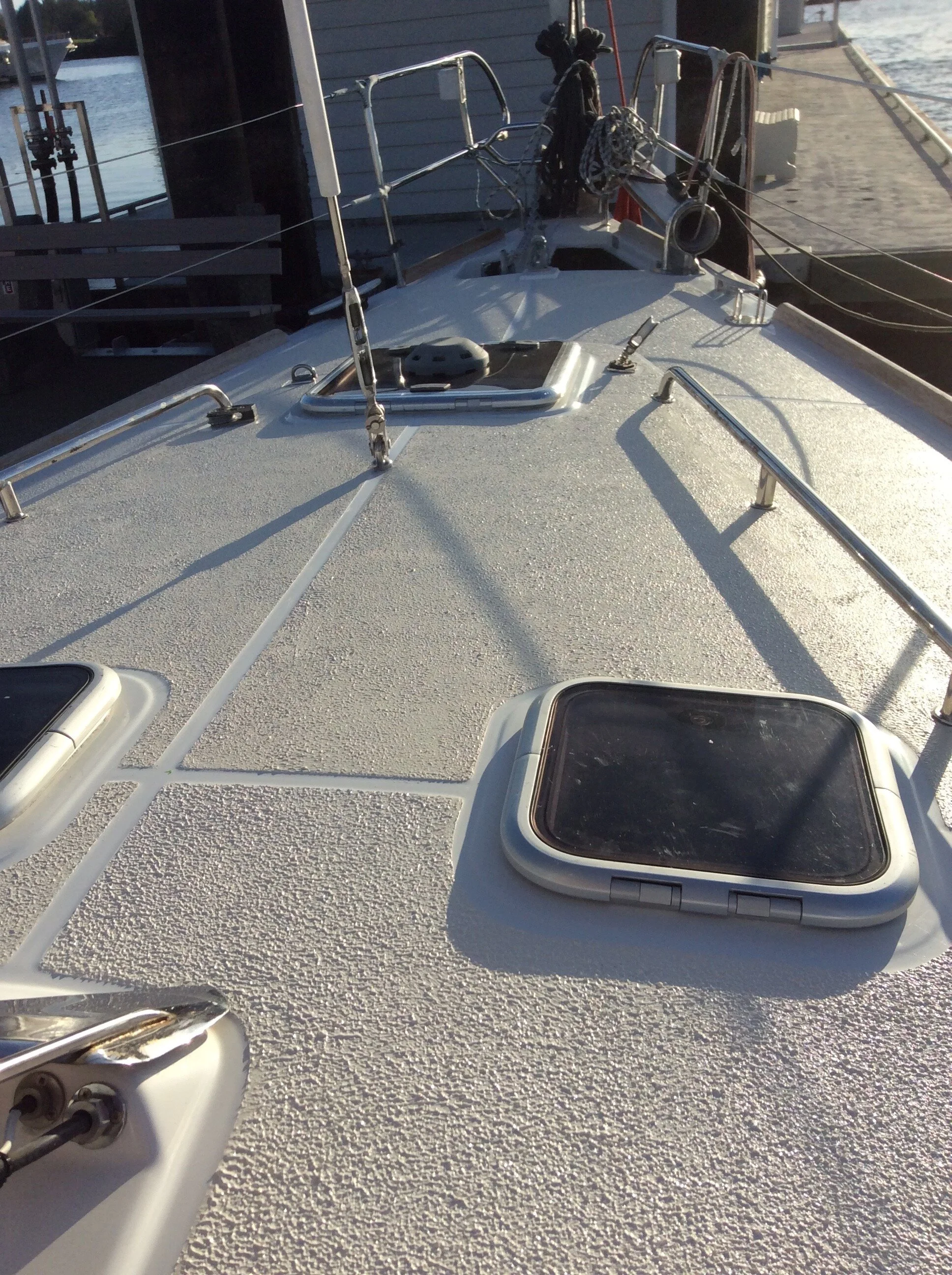Nonskid on Decks
Why we did it
The original “non slip” finish to the decks and cabin top was the typical moulded in finish, made to look look slip resistant, but in reality totally useless, especially when wet.
Why we chose KIWIGRIP
While this material would never be our first choice for a new build or when doing a complete repaint of an existing vessel, it is a practical material for a boat in the water. It is a reasonably effective non slip, easily applied whilst the boat is in the water, and non toxic to the applicator.
Sanding the moulded nonskid off.
Masking the nonskid panels.
Spreading the material.
Application Process
The first part of the job was to sand all the moulded gel coat to a flat surface. Using a heavy duty 200mm sander/polisher with 36grit paper made short, if rather dusty, work of this.
Care had to be taken to avoid scuffing the gloss dividers between the non slip panels, the occasional use of a smaller sander helped in this regard.
The most time consuming job was masking all the panel edges and the house sides. As the tape around the panels has to be pulled up immediately after each one is painted, carefully lapping the tape and including a lifting tab so a single pull removes the whole circumference in one pull greatly simplifies the job later.
The actual application is fairly simple, a notched trowel of the type used to spread flooring adhesive is used to load the Kiwi Grip onto the deck, then a regular trowel to turn the furrows into a flat, even surface, is used and finally the non slip pattern is achieved with a “spaghetti’ roller. Changing how much pressure is applied determines the roughness of the non slip pattern.
The Results
The finished job has improved, in our opinion at least, the look of the boat and it is undoubtably vastly superior to the moulded nonslip. It provides good grip to both bare footed and boat-shoed sailors whether wet or dry.
The finished job…




